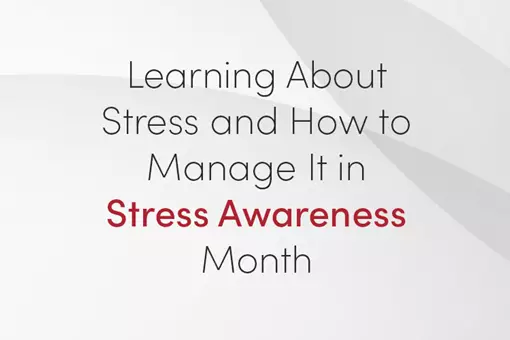How to Develop Strategic Leadership Skills
- 26th April 2019
- Written by LSBF Staff
- Opinion & Features

The term strategic leadership refers to the ability of a manager to chalk out a strategic vision and persuade fellow employees to undertake necessary actions to acquire that vision.
Effective strategic planning is the foundation of any successful business endeavour and therefore trait for employers and companies alike. This article will help you understand the intricate details of how to develop strategic leadership skills and what importance it holds in the business setting. Read on to find out!
Principles of strategic leadership:
-
Divide and rule: In order to carry out effective strategic leadership, professionals must distribute responsibilities across all levels to allow strategic leaders an opportunity to contribute to decision making. This presents professionals with situations where are required to take risks and devise strategies to handle those risks. When the responsibility of crucial decision-making is taken by those other than the normal decision-makers, it promotes resilience, collective intelligence and adaptability.
-
Maintain transparency: To have a positive impact on overall business operations, the decision-makers will need to have adequate information about the task at hand. Even if the decision concerns a confidential matter, top leadership should ensure that professionals have a solid base knowledge of the situation in order to make informed choices.
-
Idea-sharing channels: The ability to develop innovative ideas is an integral responsibility for a strategic leader. In order to do so, it is important that various channels are created to ease the spread and communication of ideas. However, too many channels may lead to less effective ideas coming to the forefront or desirable ideas going unnoticed. To prevent this, organisations can create cross-functional channels where people can pitch their ideas to fellow employees and get instant feedback on its feasibility. Younger employees can also be encouraged to collaborate with more senior employees and share their knowledge base. Both of these tactics could help create effective strategies, contributing significantly to business operations.
-
Learn from failure: The former publisher of Forbes magazine, Malcolm Forbes once said, “Failure is success if we learn from it”. Learning is a continuous process and organisations should encourage employees to “fail fast and learn faster”. This is because an actual failure can lead to a sometimes significantly unfavourable loss for a company running into a loss. It is therefore essential that potential strategic leaders have a back-up plan and strategies in place for damage control. The willingness to face failures and rise above them is an essential characteristic for strategic leaders and employees alike.
-
Experience-based learning: The best way to adapt and expand your skill base is by implementing them practically, instead of acquiring only theoretical knowledge. Traditional leadership training will help you develop a range of key managerial skills, however, a true strategic leader has gained knowledge through real-life experiences. A great way to put this into action is to gather potential strategic leaders in a team to work on a collective assignment which has the following prerequisites:
o Allocate a small budget;
o Preliminary deadline;
o A sample problem.
The team will need to create a solution for the assigned problem and the results should be tracked throughout in, noting the leader’s specific strengths which can be exploited in the future.
-
Hiring process: The hiring process is crucial to all business operations. You must closely analyse aspects of potential employees such as their personality, capabilities and workplace experiences. Here are some specifics bare in mind during the recruitment process:
o Assess the way a candidate reacts to real-life situations;
o Ask questions in the interview that test more than just their skills;
o Test their analytical skills and ability to break down a complex problem into a simpler one;
o Assess their ability to notice trivial details.
What are strategic leadership skills?
-
The ability to take risks: To implement strategic leadership effectively, you may sometimes need to take the unconventional path. This will result in the creation of new, innovative products or services that have the potential to dominate the market.
-
Motivation: Thisplays a major role in driving the organisation and its employees to the desired goal. Encouraging workers to achieve their personal best also contributes significantly to the company’s growth.
-
Communication skills: This is not just about clearly articulating ideas perfectly, but it also refers to the ability to convey the organisation’s strategic goals and encouraging employees to work towards them.
-
Planning: This is when the task at hand requires the joint effort of a large group of employees. A set of guidelines will need to be clearly laid out, as well as a path to follow while trying to achieve the company’s end goals.
-
Commitment: To successfully achieve the company’s goals while also tracking the personal growth of employees is an art that is significant to the job role of a strategic leader.
Steps to develop strategic leadership skills:
-
Step 1: Predict – Unprecedented risks and the inability to identify potential opportunities often leads to company losses and is the role of a strategic leader to predict these issues. You can develop your anticipation skills by:
o Interacting closely with your clients;
o Assessing areas of development;
o Predicting what challenges the business might face in the future;
o Conduct marketplace research;
o Analyse actions taken by competitors’ and the results;
o Assess the reason for losing or gaining clients;
o Attend conferences and conventions.
-
Step 2: Challenge – Challenges improve your ability to comprehend the task at hand and analyse a problem from different perspectives. In order to cope with challenging situations, you must:
o Identify the root cause of an issue instead of relying on just the problem;
o Conduct brainstorming sessions with other strategic leaders, where issues can be resolved.
-
Step 3: Translate – The ability to dissect a complex issue into several simpler ones is what makes a strategic leader efficient. You can improve your interpretation skills by:
o Examining unclear information and taking note of key points that you observe;
o Assess the bigger picture as well as the smaller parts and eliminate information that you consider irrelevant to the cause of the issue;
o Implement quantitative analysis.
-
Step 4: Decide – Being quick on your feet is integral when you are working in a fast-paced business environment. Sometimes, you might have to make decisions based on incomplete information, while keeping in mind short-term and long-term goals. To help you make sound decisions, you must:
o Be open to an array of options that are instrumental in solving the problem at hand;
o Understand the various small components that make up an option;
o Prioritise based on long-term and short-term requirements.
Strategic leadership skills contribute to your professional as well as personal growth. It plays a key role in the evolution of a company and is therefore a sought-after trait for employers and businesses alike. Professionals can opt for the CPD (Continued Professional Development) course in Strategic Leadership and Change offered by London School of Business to enhance their skills as a strategic leader. Hurry and sign up for the course now!
This article was written by Meghdeep Patnaik and edited by Amelia Hayward-Cole.
Other Opinions and Features
Why Business Administration Is So Important In Today'S Competitive Market
In today's fast-paced global economy, the business landscape is more competitive than ever. Companies are constantly striving for efficiency, innovation,…
Learning About Stress and How to Manage It in Stress Awareness Month
Did you know that 69% of UK university students report struggling with stress and mental health illnesses during their studies?…
Black Friday Offers from LSBF
Black Friday represents the most significant retail event of the year, with exceptional discounts across various products and services. This…


